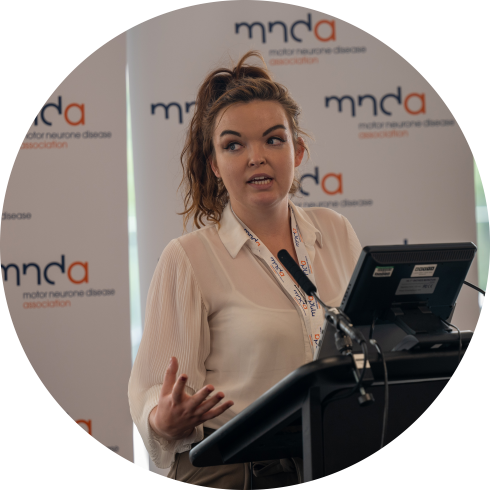Developing ways of measuring brain function changes to help predict symptoms of MND.

Principal Investigator: Dr Roisin McMackin
Lead Institution: Trinity College Dublin
MND Association Funding: £159,052* - Junior Non-Clinical Fellowship
Funding dates: April 2021 - September 2024
*Supported by the Lady Edith Wolfson Fellowship Programme
About the project
MND affects each patient in a different way, with symptoms emerging and progressing at highly variable, unpredictable rates. Therefore, some treatments may work in subsets of MND patients but not in others. It is now established that patients often experience cognitive and behavioural problems. The aim of this project is to develop ways to measure brain function changes that can predict patient symptoms and improve understanding of the biology of why MND has different effects on different people. This will be conducted by measuring how well the brain and spinal cord are functioning over time, while profiling movement and non-movement symptoms in a large group of patients. By identifying patterns of dysfunction, patients will be categorised into subgroups with similar prognosis then tested if these measures can predict individual patients’ symptoms in future. This is expected to facilitate earlier, more informative diagnoses for patients and improve detection of effective therapies in clinical trials.
What could this mean for MND research?
Being able to predict symptoms of a person living with MND will help to provide more information on diagnosis and throughout the development of the disease. Characterising people with MND into subgroups will allow for a more personalised approach to treating MND. These subgroups will also impact clinical trial design.
"The MNDA Junior Non-Clinical Fellowship is enabling me to develop exciting lab results into technology that can improve the lives of ALS patients"
Resources
Project code: 972-799
